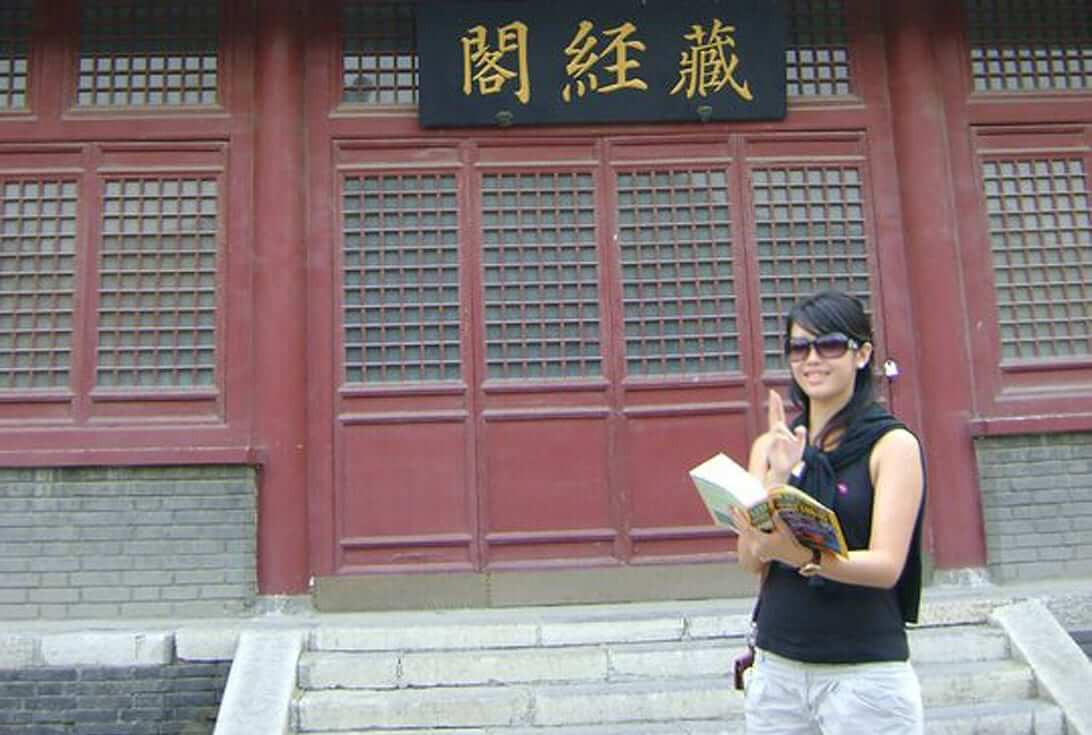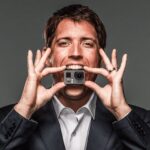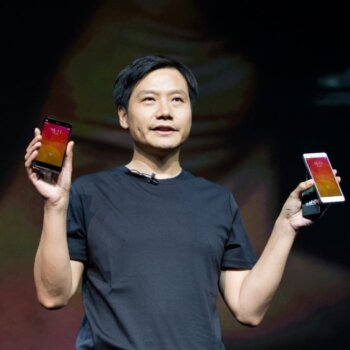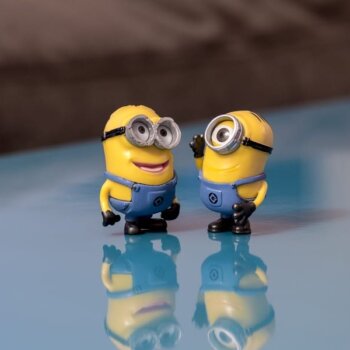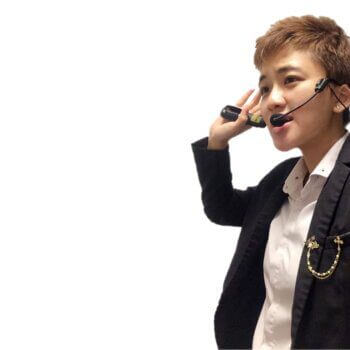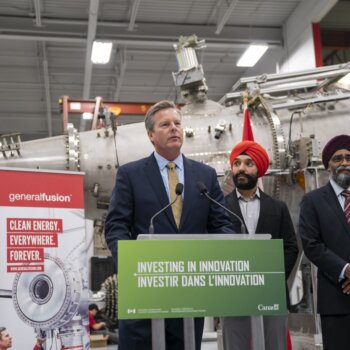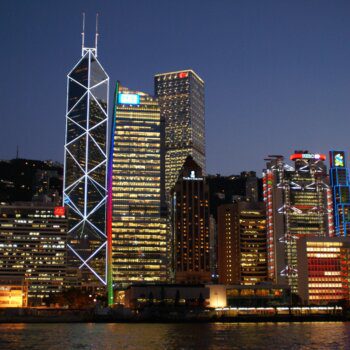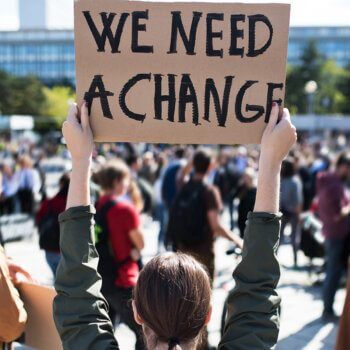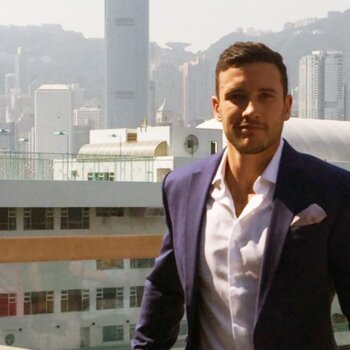Running a medtech startup is a marathon. Results do not happen overnight.
What’s your story?
I am Joyce Chee, the CEO of eVida Healthcare, a medtech startup developing fall prevention solutions. I graduated from Information Engineering & Media from Nanyang Technological University in 2013, and have embarked on an entrepreneurial career since. Life has transformed into a roller coaster ride with the ups and downs of the company. Recalling from memory, my business partner and I went through tough times together. We borrowed money from friends and family, painted our client’s house and grabbed free food for each other when we couldn’t pay ourselves salaries. But on the bright side, we jubilated when we secured funding, rejoiced when we were awarded projects and stood firmly by each other when people came and left us.
What excites you most about your industry?
Unlike the fast turnover of consumer electronics, medtech technologies take years for adoption by healthcare institutions. The product quality, both in terms of ergonomics and functionalities, has to surpass a premium threshold set by Singapore’s medical industry. Our product is compared side by side with those from reputable brands like Omoron. Even if you managed to go against all odds and penetrate into the market, many challenges await when the company expands overseas, as you have to go through different sets of mandatory and stringent product certification tests following the country’s regulations.
Running a medtech startup is a marathon. It is not a hit-and-exit business in which valuation can be inflated with exponential increase in user database. Growth is achieved steadily over 10 to 15 years. It is hard to associate my industry with “excitement”, but I think the most satisfying reward is the sense of accomplishment in product excellence and brand credibility when our solution is deployed in hospitals.
What’s your connection to Asia?
I am a home-grown Singaporean. I grew up in the heartland and went through the entire course of the Singapore public education system. My values and thinking are pretty oriental under the influence of my Chinese-speaking parents. During my 6-month internship in Beijing in 2010, I attended part-time summer study in Peking University and adored Confucius’s teachings which emphasize empathy (仁) and well-manners (礼).
From my limited 2 years experience running a business, displaying modesty comes a long way to building trust and lasting relationships with important stakeholders. These people come from China, Myanmar, Philippines, Malaysia, Brunei and of course Singapore. Surprisingly, this formula is not as effective when I worked with an Italian partner in Singapore. So I conclude my business ethics are pretty Asian-oriented. I think I will work around the region for the next few years before getting myself more “westernised”.
Favourite city in Asia for business and why?
My business partner and I have made a few overseas business trips. Cebu, Philippines is a nice city with relatively low operation cost in rental and salaries, and an abundance of hardworking people who speak comprehensive English. Brunei provides us the greatest convenience with interchangeable currency with Singapore dollars. Chennai, India has a ready pool of experienced software engineers.
After weighing the pros and cons, my favourite city to build a company is exactly where we belong, here in Singapore. The first step to building any company is forming a team. Singapore is a cosmopolitan society, and the fact that we value racial and religious harmony means we can set aside any prejudice and choose our business partners wisely based on merits and chemistry. Inevitably, the founding team would have to bootstrap and endure a period with financial insecurity. Although Singapore is known to be one Asia’s highest cost of living, the government fundings and grants help startups to tide through this difficult period. Speaking from personal experience, I survived without income for 5 months and somehow still managed to feed myself, have a roof over my head and paid my internet and handphone bills. As a company founder, these are simply all you need to function.
What’s the best piece of advice you ever received?
God can only help those who help themselves. I am grateful to the wise men and women who genuinely advised me when I was in doubts. However I can’t figure a way to measure who has given the best piece of advice.
In my humble opinion, the quality of advice is dependent on how receptive we are to accept our own shortcomings, and whether we are determined to move out of comfort zones to internalise necessary changes to be a better leader.
It is important to bear this in mind as we can’t rely on luck for external factors, like meeting a good mentor, to be favourable to us. However we can have full control over our own mind. We are the best adviser to ourselves only if we reflect on our actions and listen to others’ advice.
Who inspires you?
I admire people whose words and actions earn my respect. My role model is Mr Lee Kuan Yew as an inspirational leader. Unfortunately, I haven’t found the time to read his biographies for a more thorough understanding of his school of thoughts. Something which I would love to do when I have time for a vacation.
Also there is an everyday hero whom I would like to thank. I worked closely with him in building the company. He has shown much graciousness in forgiving my shortcomings and patience in guiding me with managerial skills. He made self-sacrifices to pave the way for his comrades. He leads by example and convinced me that true friendship can endure life’s challenges (previously I haven’t met anyone, not related by blood, who would put my interest before theirs). He is my friend and teacher Mr M Rush.
What have you just learnt recently that blew you away?
The mind of a genius engineer is not easily comprehensible. For example if you request a product demonstration, most likely you will be impressed with the engineering works done, but will still scratch your head wondering what is the possible application.
The choice of words when phrasing your questions are critical when you talk to a genius engineer. Don’t use words loosely, else you could get into trouble.
If you had your time again, what would you do differently?
I would probably do the same, since there is no short cut to success. But the only difference I wish is to start 1-2 years earlier.
How do you unwind?
Jogging/Running. Sweating out is a good way to release bottled-up emotions. With better health you can juggle your insurmountable work.
Favourite Asian destination for relaxation? Why?
Taiwan perhaps? Pictorial scenery, good food and speak a language which I understand.
Everyone in business should read this book:
Not exactly a book, but an 18-minute YouTube video by Simon Sinek, “Start with Why”.
Shameless plug for your business:
eVida Healthcare – The specialist in Fall Prevention
How can people connect with you?
I am contactable at [email protected]
—
This interview was part of the Callum Connect’s column found on The Asian Entrepreneur:
Callum Laing invests and buys small businesses in a range of industries around Asia. He has previously started, built and sold half a dozen businesses and is the founder & owner of Fitness-Buffet a company delivering employee wellness solutions in 12 countries. He is a Director of, amongst others, Key Person of Influence. A 40 week training program for business owners and executives.
Take the ‘Key Person of Influence’ scorecard <http://www.keypersonofinfluence.com/scorecard/>
Connect with Callum here:
twitter.com/laingcallum
linkedin.com/in/callumlaing
Get his free ‘Asia Snapshot’ report from www.callumlaing.com
